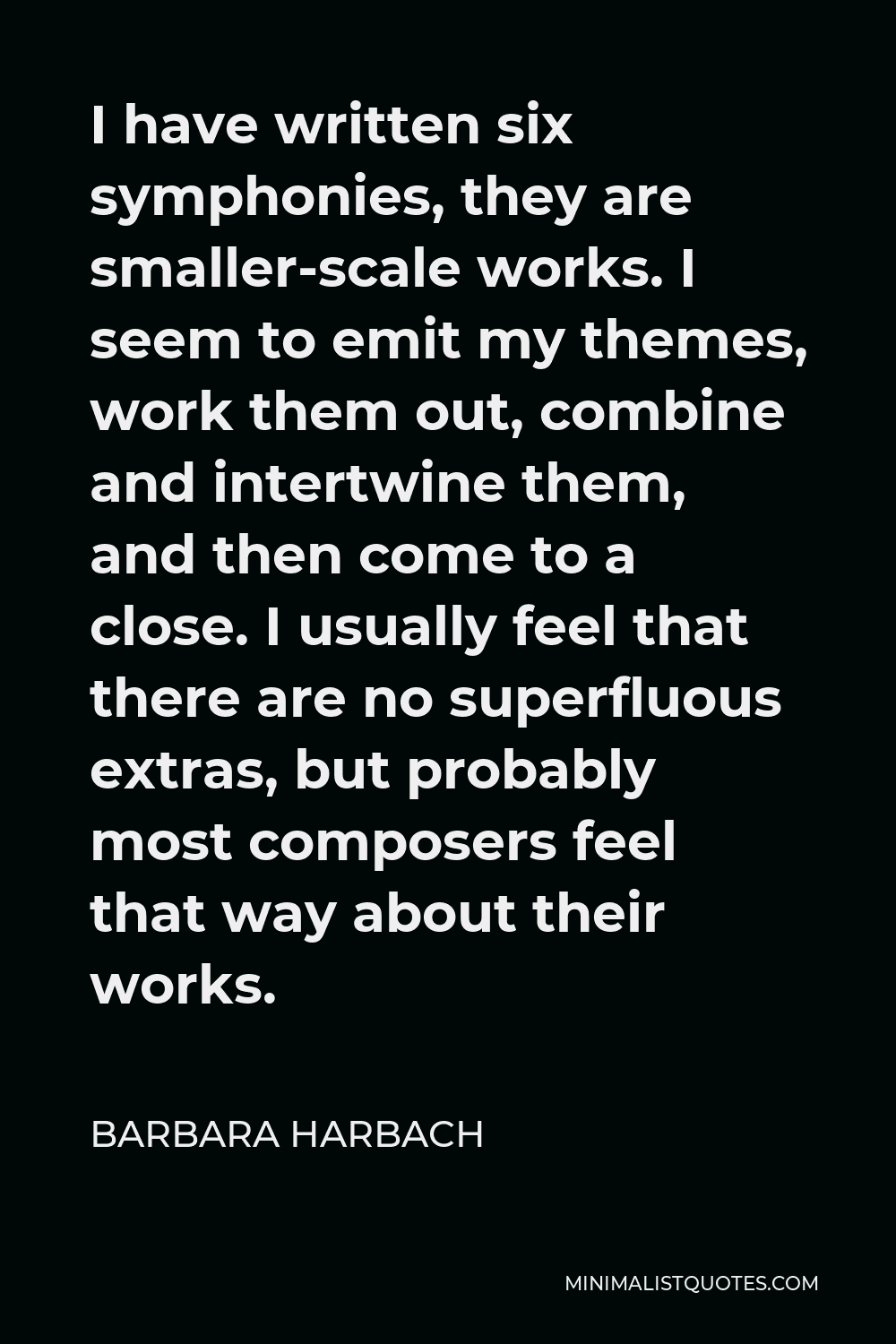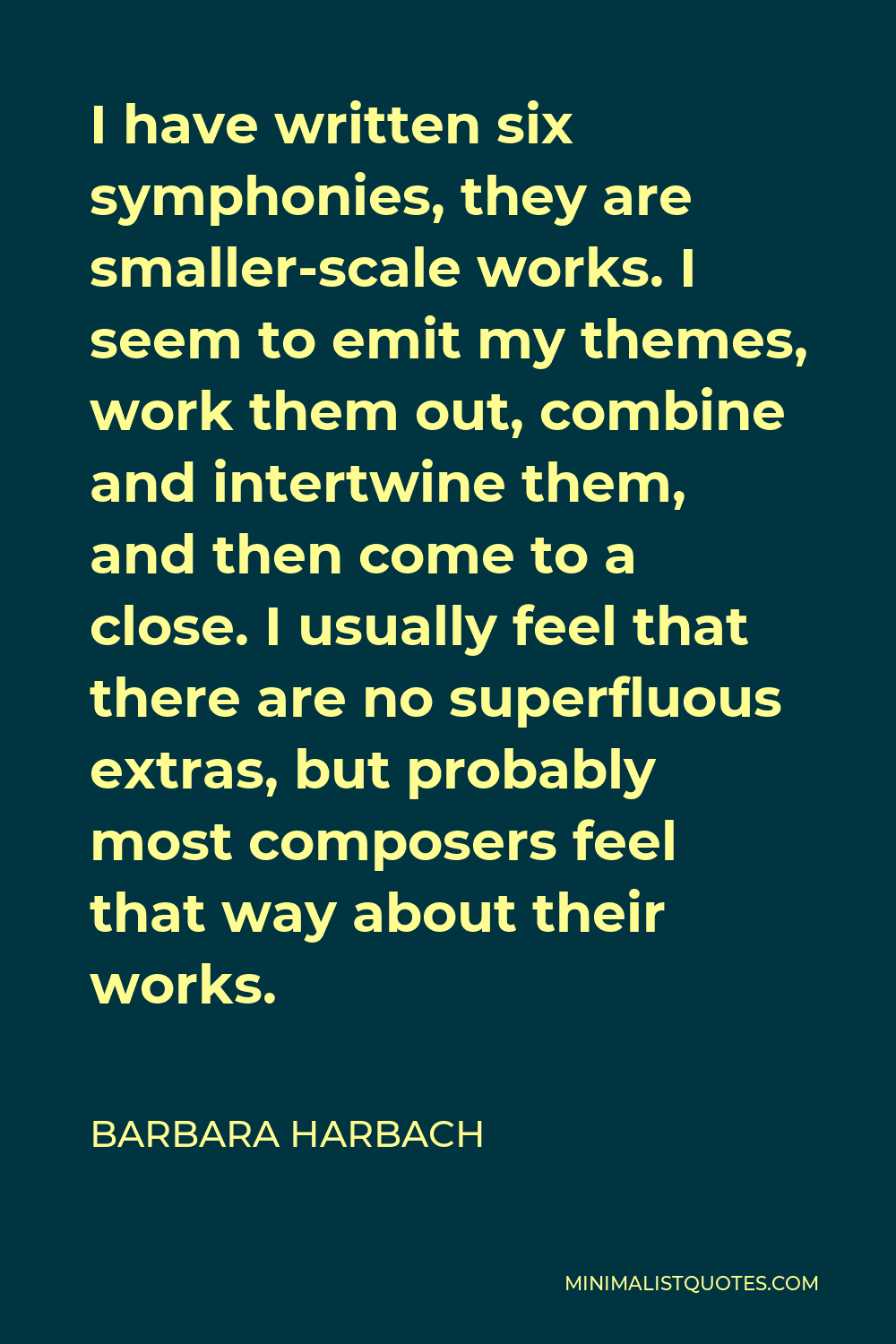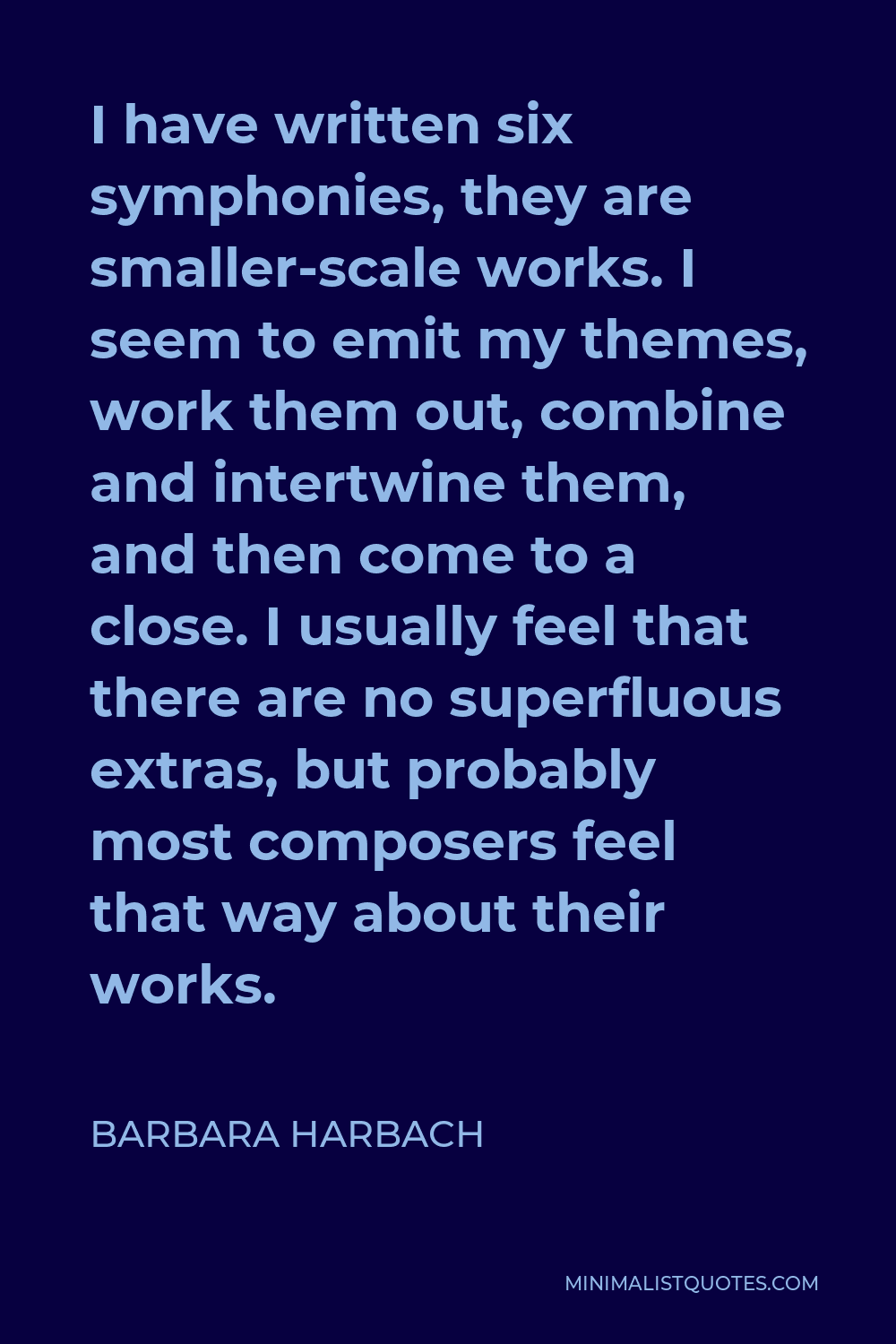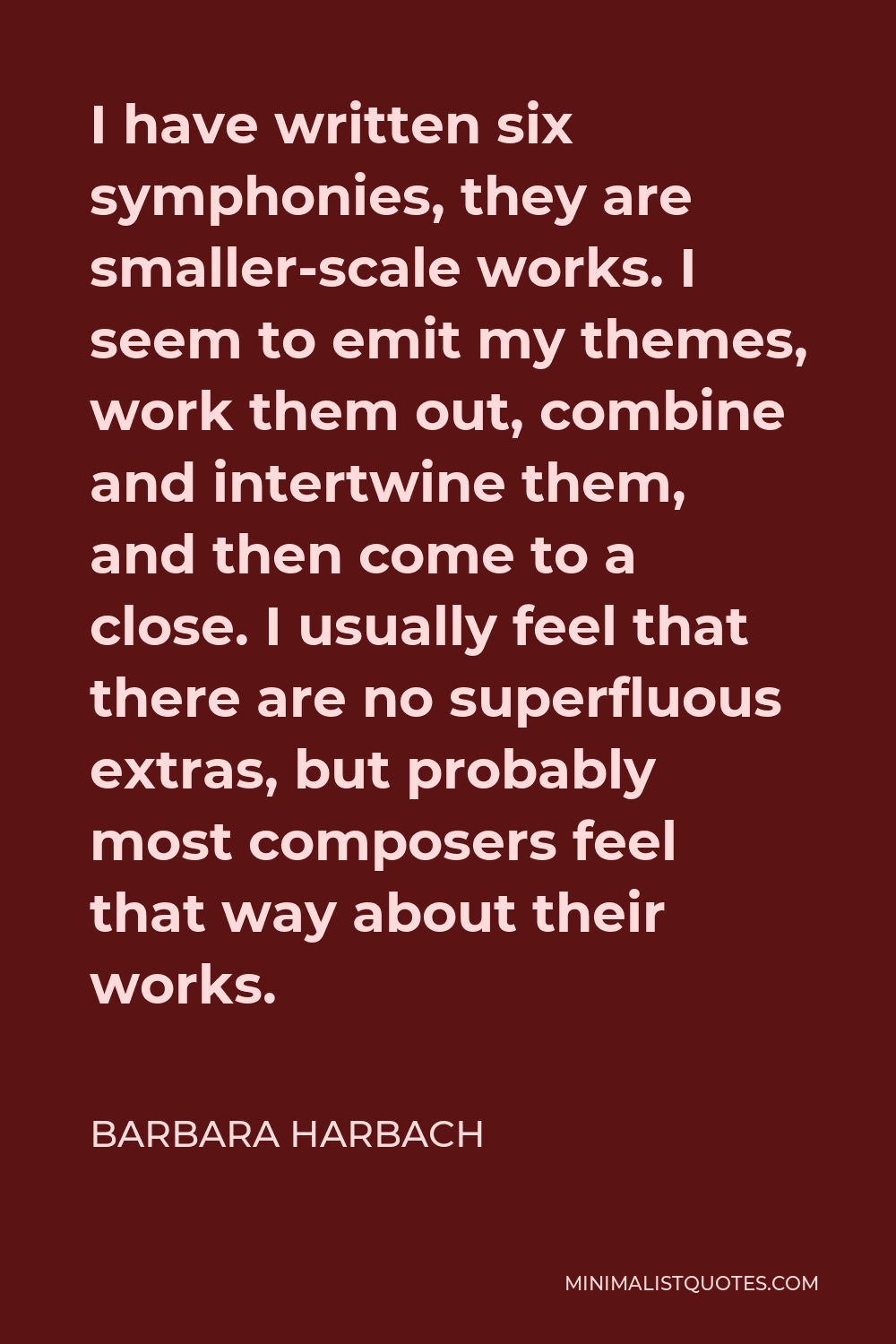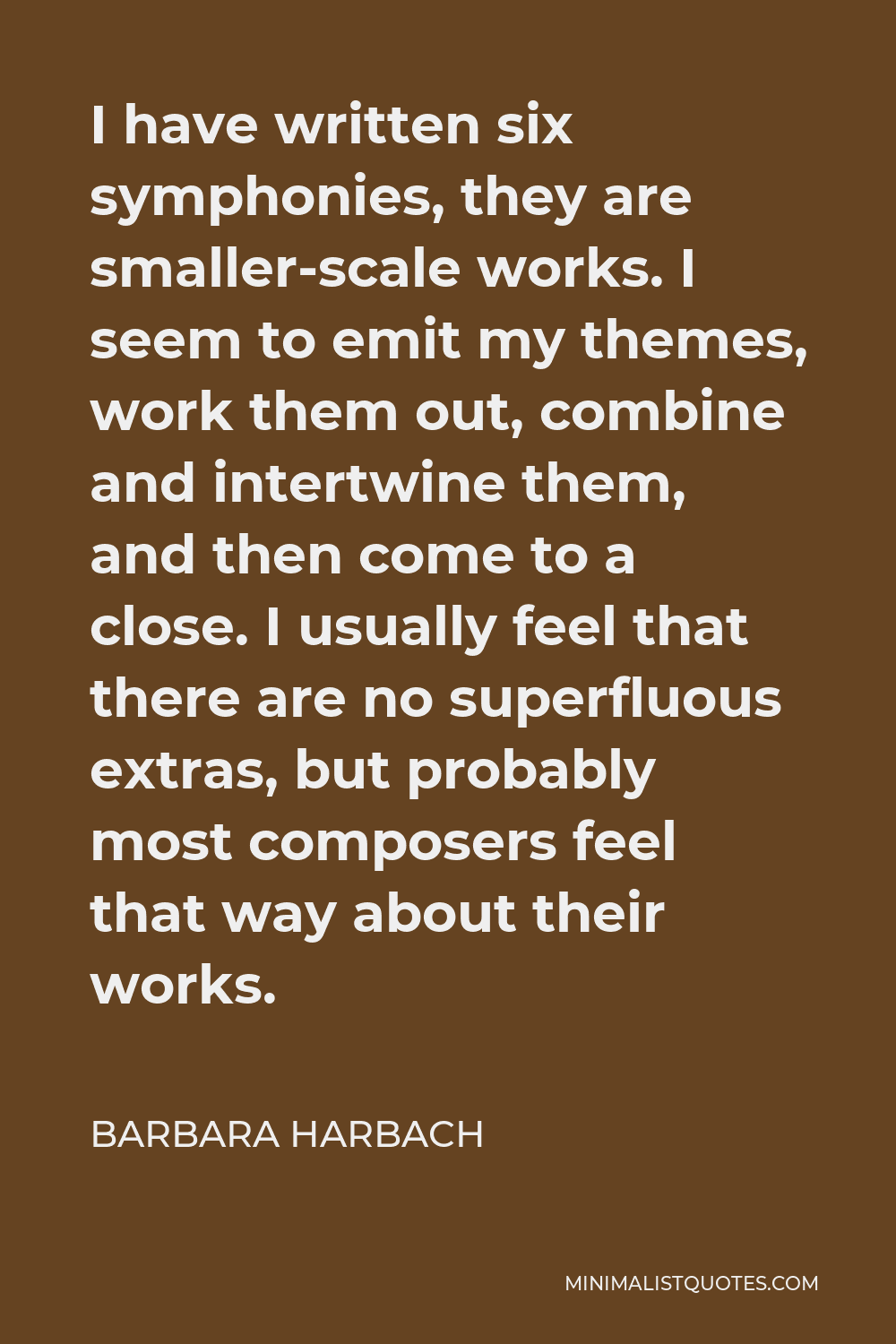The first part of my career was indeed as a performer and recording artist, and I am still keenly involved with both. While rummaging around in the British Library, I found many delightful and interesting compositions by 18th-century men and women composers.
BARBARA HARBACHI have written six symphonies, they are smaller-scale works. I seem to emit my themes, work them out, combine and intertwine them, and then come to a close. I usually feel that there are no superfluous extras, but probably most composers feel that way about their works.
More Barbara Harbach Quotes
-





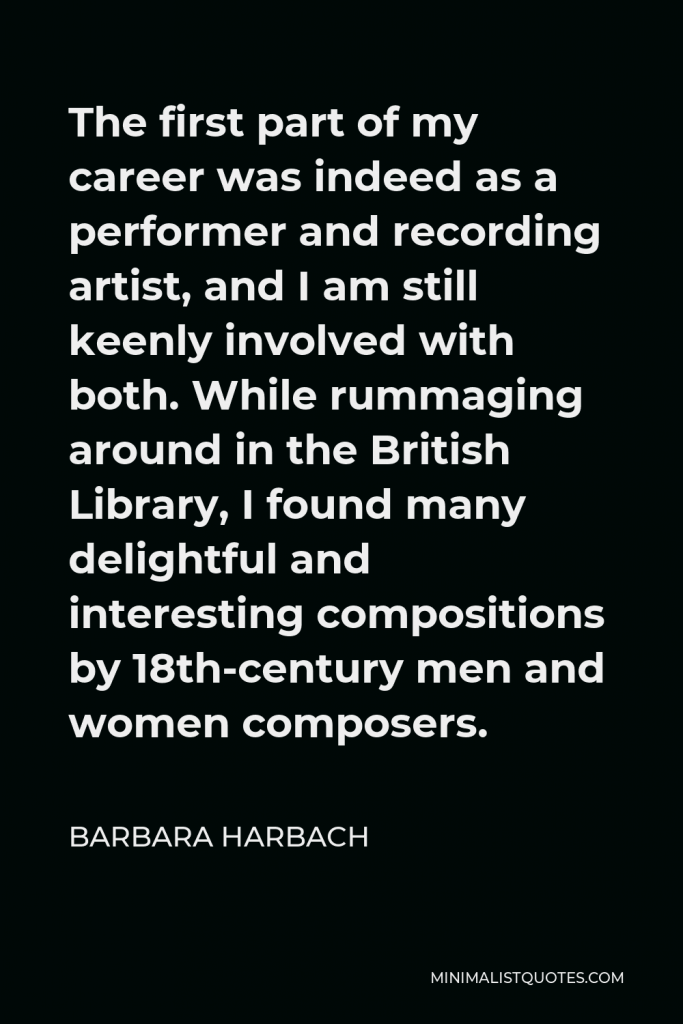

-





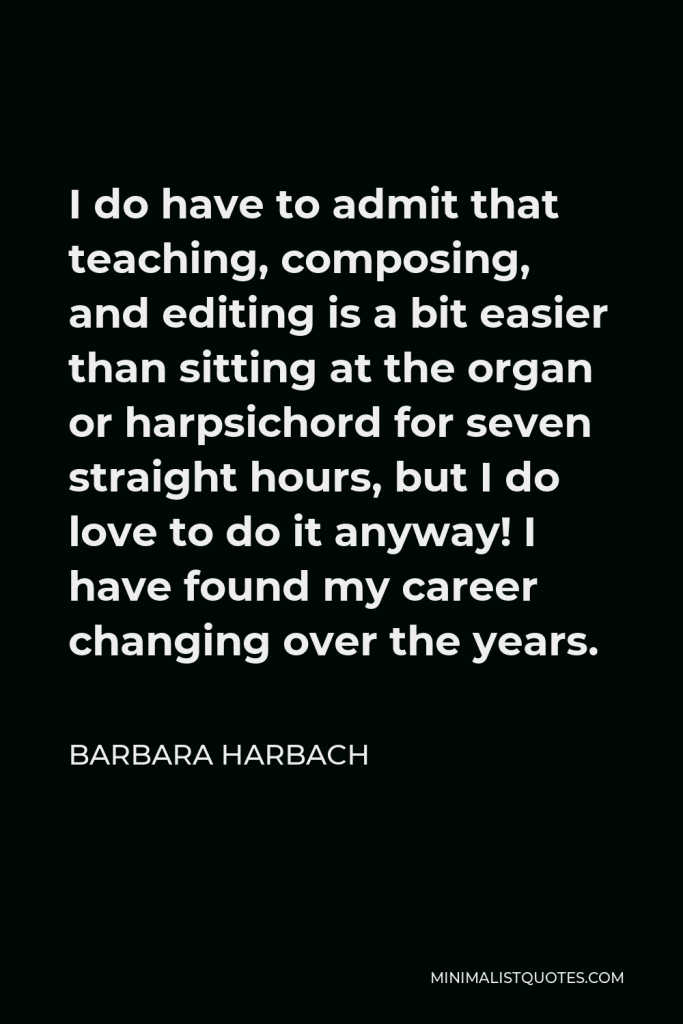

I do have to admit that teaching, composing, and editing is a bit easier than sitting at the organ or harpsichord for seven straight hours, but I do love to do it anyway! I have found my career changing over the years.
BARBARA HARBACH -





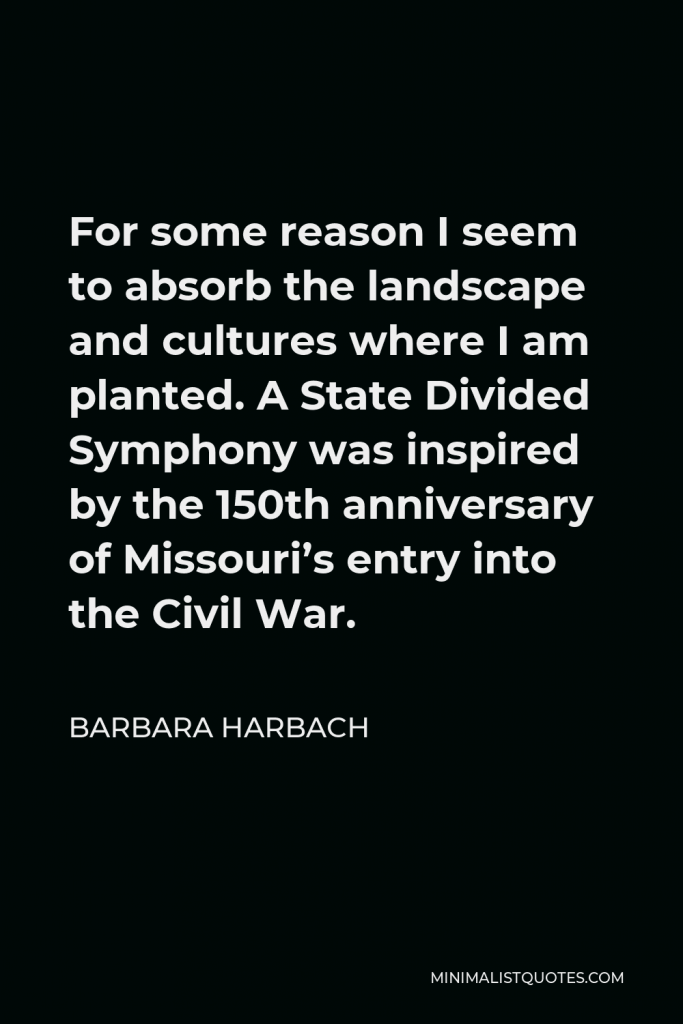

For some reason I seem to absorb the landscape and cultures where I am planted. A State Divided Symphony was inspired by the 150th anniversary of Missouri’s entry into the Civil War.
BARBARA HARBACH -





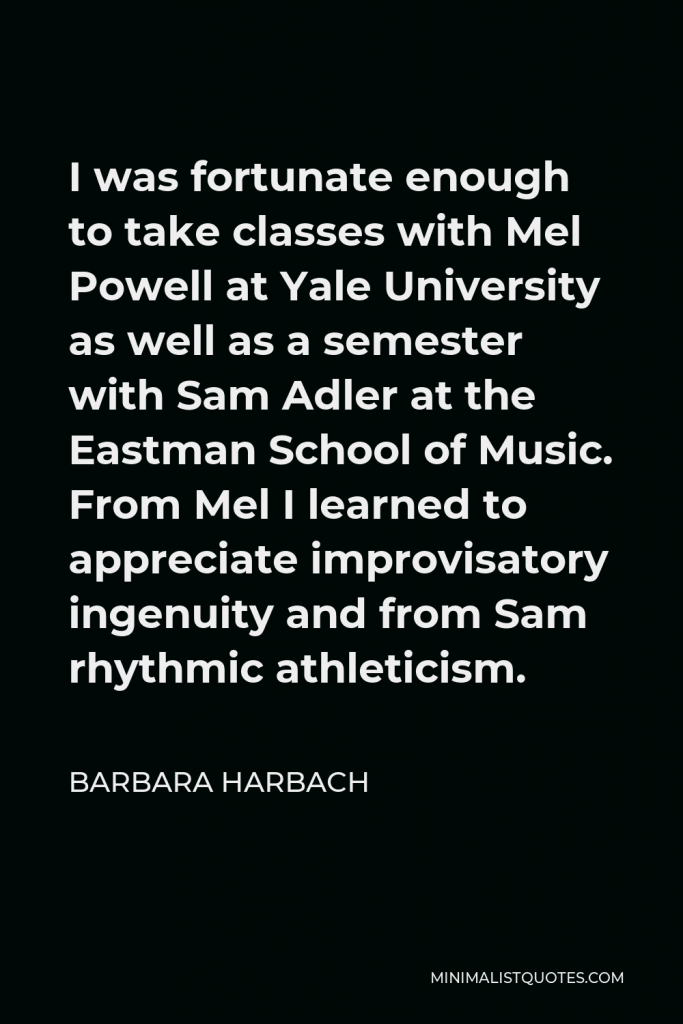

I was fortunate enough to take classes with Mel Powell at Yale University as well as a semester with Sam Adler at the Eastman School of Music. From Mel I learned to appreciate improvisatory ingenuity and from Sam rhythmic athleticism.
BARBARA HARBACH -





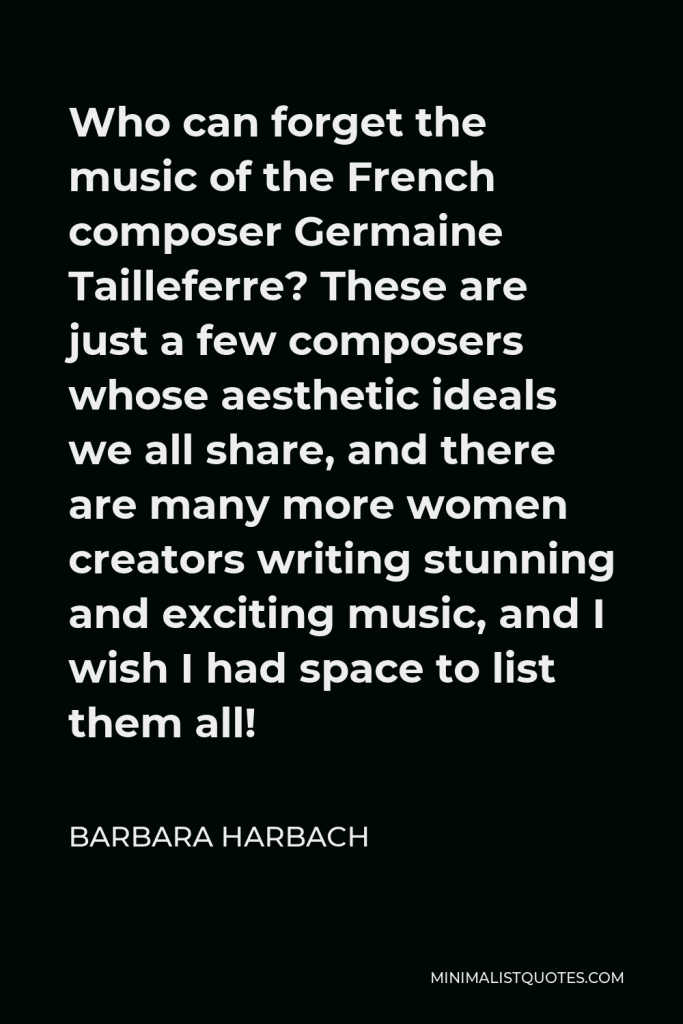

Who can forget the music of the French composer Germaine Tailleferre? These are just a few composers whose aesthetic ideals we all share, and there are many more women creators writing stunning and exciting music, and I wish I had space to list them all!
BARBARA HARBACH -





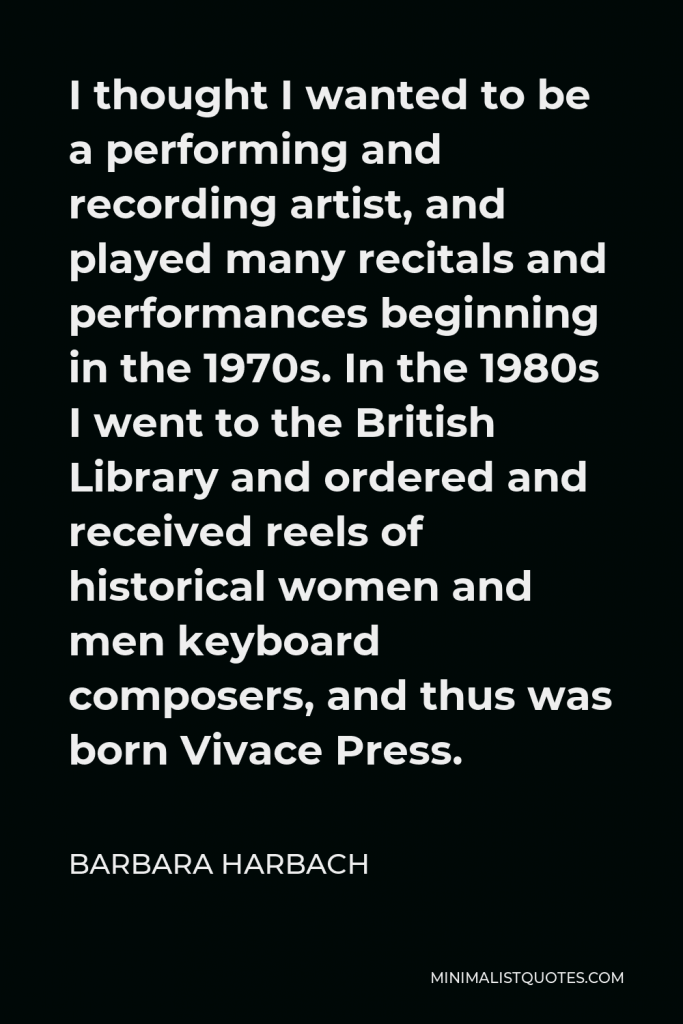

I thought I wanted to be a performing and recording artist, and played many recitals and performances beginning in the 1970s. In the 1980s I went to the British Library and ordered and received reels of historical women and men keyboard composers, and thus was born Vivace Press.
BARBARA HARBACH -





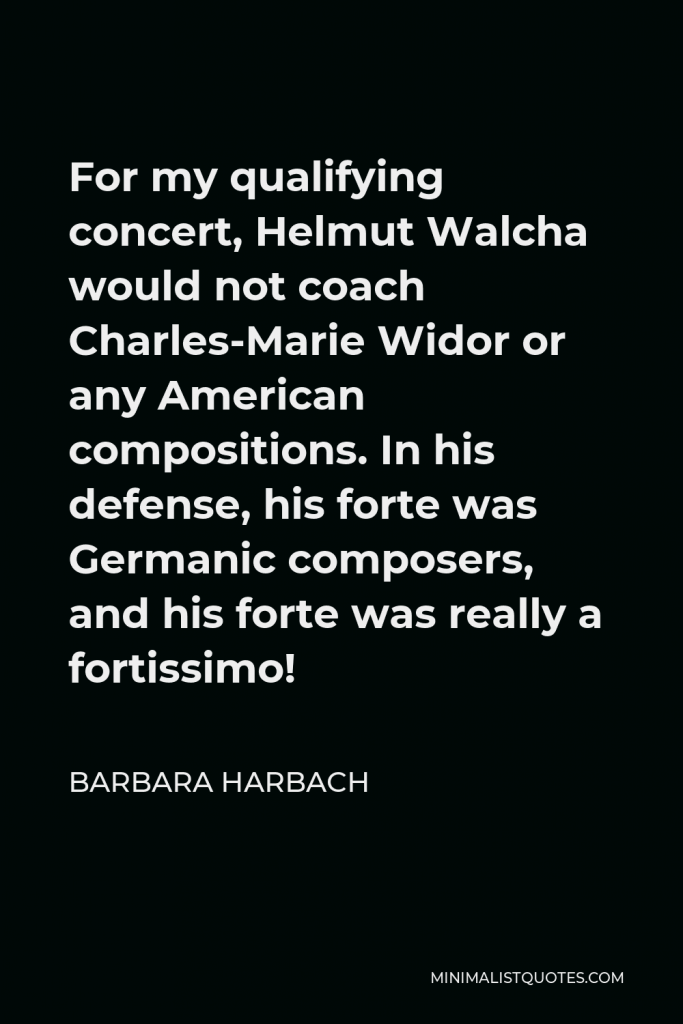

For my qualifying concert, Helmut Walcha would not coach Charles-Marie Widor or any American compositions. In his defense, his forte was Germanic composers, and his forte was really a fortissimo!
BARBARA HARBACH -





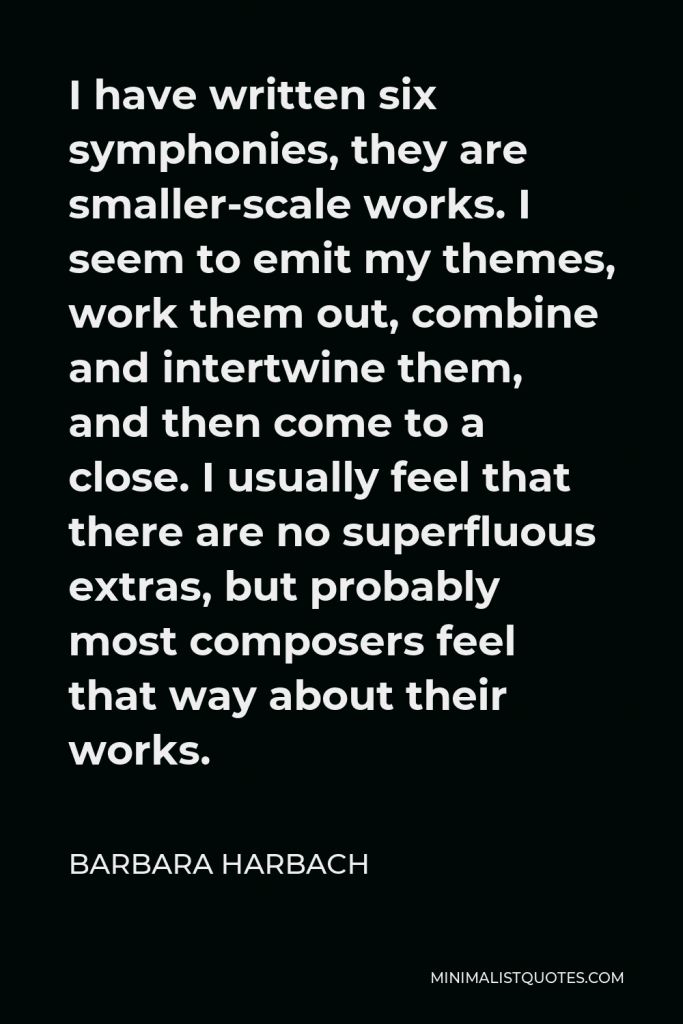

I have written six symphonies, they are smaller-scale works. I seem to emit my themes, work them out, combine and intertwine them, and then come to a close. I usually feel that there are no superfluous extras, but probably most composers feel that way about their works.
BARBARA HARBACH -





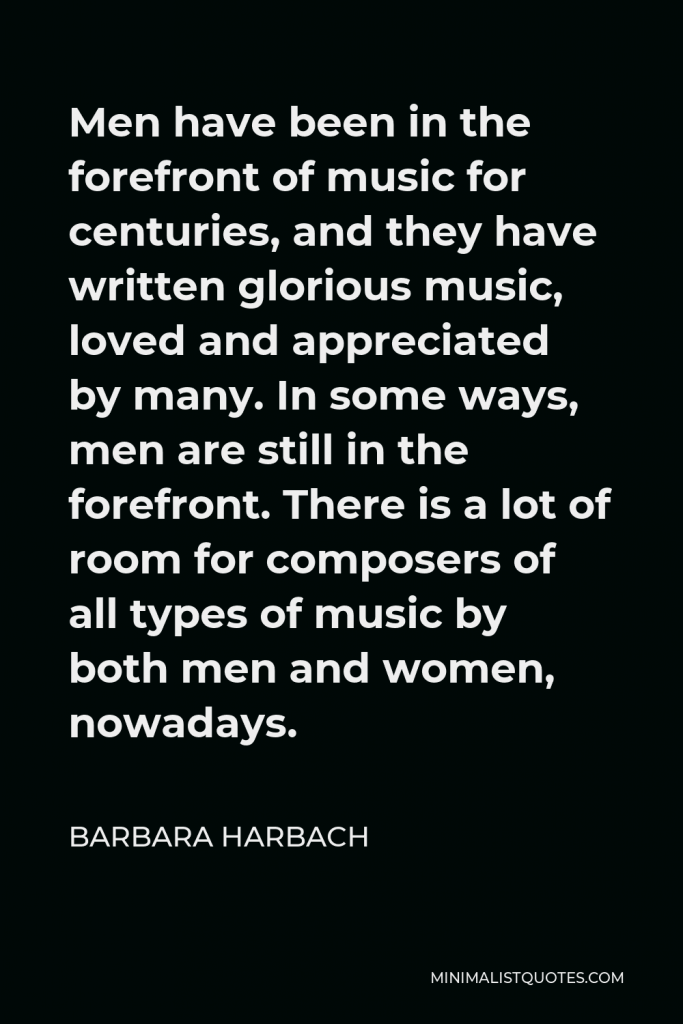

Men have been in the forefront of music for centuries, and they have written glorious music, loved and appreciated by many. In some ways, men are still in the forefront. There is a lot of room for composers of all types of music by both men and women, nowadays.
BARBARA HARBACH
